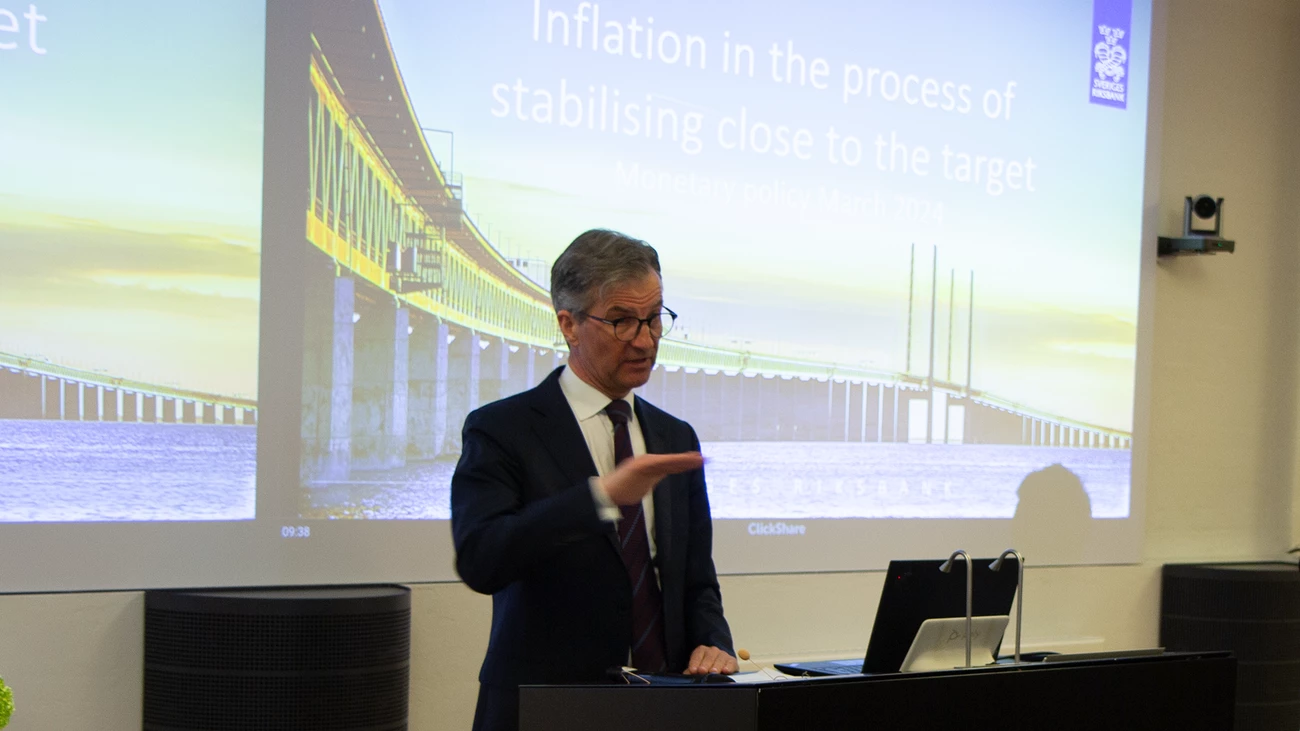“We should remember that the inflation uptick from the very beginning was to a large extent actually driven by supply effects caused by geopolitical risk,” he said.
Thedéen also pointed to a weaker SEK and companies’ pricing behaviour as additional risks to the inflation outlook. While companies’ pricing plans have come down, will they remain stable if the SEK weakens? Or will companies factor a weaker SEK into higher pricing?
In addition, there’s a risk that the Riksbank simply talking about lowering interest rates could trigger a so-called “ketchup effect,” driving demand, for example, in the housing sector. There’s a “risk that this will come too fast in an economy where supply is not meeting demand,” Thedéen said.
He emphasised that while the Riksbank may lower rates in May or June, the path would be a gradual one.
“There’s a lot of uncertainty. So it’s wise to do this in a fairly gradual manner so we can actually read what’s going to happen in the economy as we lower interest rates,” he said.
Asked by Nordea host and economist Torbjörn Isaksson to reflect on his time as Riksbank governor since he started at the beginning of 2023, he responded: “Fascinating, important and fairly hectic.”
The Riksbank will hold its next monetary policy meeting in May.
Follow our analysts’ latest updates and analysis on the Swedish economy.




